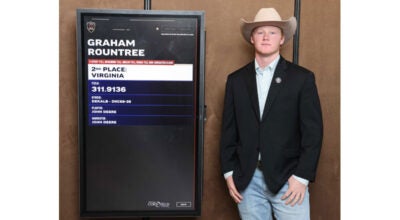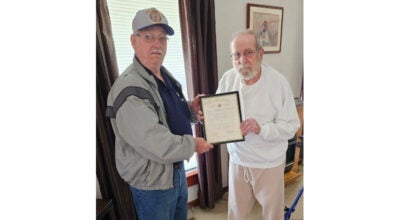Businesswoman takes issue with tax collection
Published 6:31 pm Wednesday, June 3, 2020
|
Getting your Trinity Audio player ready...
|
IVOR
A Southampton County businesswoman is taking exception to how her back taxes were collected by the county treasurer, Cynthia Edwards.
Donna Degroat, the proprietor of 460 Cafe and Farmers Market in Ivor, acknowledges that she owed approximately $1,400 in unpaid meals taxes. She added that calls had been made to the treasurer to work out an arrangement because of other pressing business-related bills. Degroat seemed to think that was settled and she’d have more time.
Apparently not. In late April, she discovered that liens had been put on personal bank accounts. Further, the stimulus money she received from the federal government was tapped to pay the aforementioned taxes. This reportedly caused her to be overdrawn, still owing about $300.
Edwards told The Tidewater News via email that she indeed put the liens on the accounts, and cited VA Code § 58.1-3952 “gives the Treasurer authority to issue bank liens for delinquent taxes.”
The code reads, in part: The treasurer or other tax collector of any county, city or town may apply in writing to any person indebted to or having in his hands estate of a taxpayer or other debtor for payment of taxes, or other charges collected by the treasurer, more than thirty days delinquent out of such debt or estate.”
The treasurer could not confirm the remaining amount owing to a confidentiality clause in code § 58.1-3. She did state, “After the total amount due has been collected for the county and has been submitted by then the lien-holder, then the lien has been satisfied.”
Degroat said she was told by the treasurer that she could go to jail if the remainder is not paid. Edwards countered, “This is what she was actually told: ‘The restaurant has been substantially delinquent since 2016, (far in excess of the $300 Mrs. Donna Degroat disclosed) and, if a taxpayer fails to pay meals tax and spends the funds on something else, it is considered embezzlement for which a conviction can result in prison time.’”
Edwards then referenced Attorney General opinions and Code section § 18.2-111, which reads, in part: “If any person wrongfully and fraudulently use, dispose of, conceal or embezzle any money, bill, note, check, order, draft, bond, receipt, bill of lading or any other personal property, tangible or intangible, which he shall have received for another or for his employer, principal or bailor, or by virtue of his office, trust, or employment, or which shall have been entrusted or delivered to him by another or by any court, corporation or company, he shall be guilty of embezzlement.”
Asked how Degroat’s imprisonment would help getting the debt paid, Edwards replied, “At this point, I feel certain that the judge would order specific requirements as to her payment of the taxes.”
Asked how many other county business owners — numbers, not names – are behind in paying their meals taxes, the treasurer said, “When I took office Jan. 1, 2020, there were four business owners with delinquent meals taxes. Unfortunately, one of those businesses had already slipped past the five-year collection period for collecting meals taxes; and, I had to write it off the books.
“I have successfully collected the total amount due for one of these businesses. I am in a collection process with two of these businesses with one of those being the 460 Café.”
She said that business owners owing taxes are made aware of payment plans: “…that is the first step I take to get them caught up in a short period of time.”
The treasurer added that the deadline to report and pay all meals taxes is the 20th of the month following the month the taxes were collected.
Degroat has since contacted a local law firm about the matter, and was unable to comment further.





